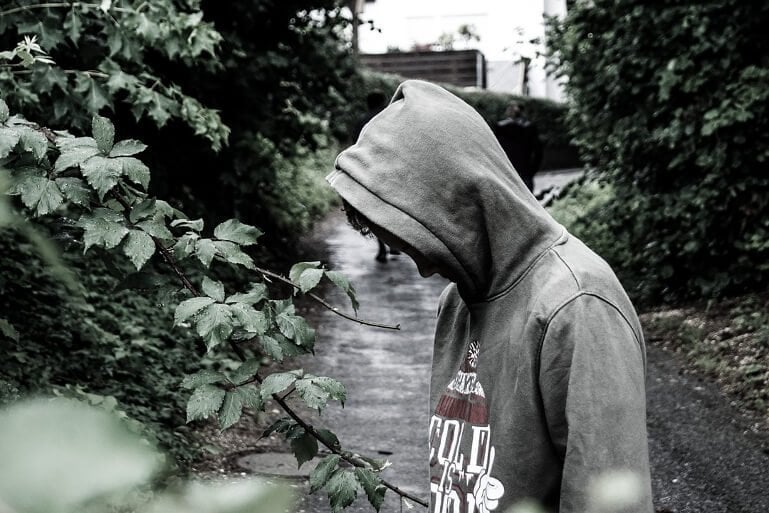Summary: A new study found that both adolescents and their mothers can have differing perceptions of parenting behavior, which can have an impact on adolescents’ mental health. The study found that while maternal autonomy support positively predicted adolescents’ basic psychological needs satisfaction, adolescents’ perceived controlling parenting had a negative impact on their mental health. The findings suggest the importance of understanding the nature of support that adolescents seek and guiding parenting behavior to enhance mental health and well-being.
Source: Doshisha University
The relationship between adolescents and their parents has always been an intriguing issue in psychological research. Several studies underscore the significance of parenting behavior in the development of young people.
Parental autonomy support, in particular, has been considered essential for adolescents’ growth and healthy functioning. Parental autonomy support and controlling parenting are the two most important facets of parenting. The former refers to parents supporting the independence of their children, including listening carefully, providing choices, perspective-taking, and offering valid reasoning for particular behaviors.
On the contrary, controlling parenting refers to parental behaviors that pressure children to do things they would not freely do, including enforcing obedience and conformity, using rewards as a tool to control, imposing one’s own agenda on the children, and allowing them fewer choices.
These parenting behaviors can either decrease or increase the risk for mental illnesses, respectively, in adolescence. Similarly, the two behaviors can positively or negatively influence adolescents’ satisfaction of basic psychological needs, respectively.
Satisfaction of basic psychological needs increases adolescents’ life satisfaction and their enhances mental wellness. Whereas, a lack of satisfaction could lead to diminished vitality, loss of volition, fragmentation of personality, and ill-being.
However, most studies on parental autonomy support and controlling parenting depend primarily on children’s perceptions of parenting behaviors, ignoring the fact that parents and children can have different perceptions. And very few studies have explored the impact of these perceptions on adolescents’ basic psychological needs satisfaction.
Consequently, researchers in Japan, led by Prof. Ayumi Tanaka from Doshisha University’s Faculty of Psychology, investigated the similarity between the perceptions of adolescents and their mothers on parental autonomy support and controlling parenting. They also examined the possible association of these perceptions with adolescents’ depressive symptoms (mental health) by using basic psychological needs satisfaction as a mediator.
“It is necessary to understand the relative impact of parents’ and adolescents’ perceptions of autonomy support and controlling parenting on basic psychological needs satisfaction. This understanding could explain the importance of parenting in the adolescent developmental process” explains Prof. Tanaka.
This study, which was published in the Journal of Youth and Adolescence on 19 January 2023, is part of a larger research project—”The examination of risk factor for amotivation in the classroom.”
Prof. Tanaka and her team recruited 408 pairs of mothers and adolescent from Japan who completed a questionnaire at two time points, four months apart (October 2019 and February-March 2020). They gauged the perceptions of adolescents and mothers regarding mothers’ autonomy support and controlling parenting using the 24-item Perceived Parental Autonomy Support Scale (P-PASS).
Then they collected data on adolescents’ level of basic psychological needs satisfaction via the Japanese version of the Basic Psychological Need Satisfaction and Frustration Scale. They also collated adolescents’ level of depressive symptoms using a version of the Depression Self-Rating Scale for Children.
Statistical analysis of the mother-adolescent responses revealed that there is low to moderate agreement between mothers’ and adolescents’ perceptions of parenting. The researchers also found that mothers’ reported autonomy support, but not adolescents’ perceptions, positively predicted adolescents’ basic psychological needs satisfactions. However, adolescent-reported basic psychological needs satisfaction was found to negatively predict depressive symptoms.

These results show that adolescents may perceive parenting differently than their mothers, which could be a result of differing points of view. However, despite these differences, both perceptions can independently predict depressive behavior in adolescents based on basic psychological needs satisfaction.
Furthermore, regardless of adolescents’ perceptions, maternal autonomy support might be beneficial; and regardless of mothers’ report, adolescents’ perceived controlling parenting is damaging for adolescents’ mental health.
Envisioning the possible impact of this research, Prof. Tanaka says, “With these findings, mothers and other people around adolescents can understand the nature of support that adolescents seek. Support for healthy life for adolescents, the creators of the future, is important for every society in the world.
“We hope that our research can help vitalize the society in both the short- and long-terms by guiding parenting behavior to enhance mental health and well-being of adolescents.”
About this depression and parenting research news
Author: Jun Kita
Source: Doshisha University
Contact: Jun Kita – Doshisha University
Image: The image is in the public domain
Original Research: Open access.
“Longitudinal Association between Maternal Autonomy Support and Controlling Parenting and Adolescents’ Depressive Symptoms” by Ayumi Tanaka et al. Journal of Youth and Adolescence
Abstract
Longitudinal Association between Maternal Autonomy Support and Controlling Parenting and Adolescents’ Depressive Symptoms
Most studies on autonomy support and controlling parenting rely on children’s perceptions, despite the limitations of this approach.
This study investigated congruency between autonomy support and controlling parenting reported by mothers and adolescents and their association with adolescents’ depressive symptoms via basic psychological needs satisfaction.
Participants included 408 Japanese mother–adolescent (Mage = 13.73, SD = 0.90, 52% female) pairs who completed a questionnaire at two time points four months apart.
Results demonstrated low to moderate levels of mother–adolescent agreement. Cross-lagged regression models revealed that mothers’ reported autonomy support positively predicted adolescents’ basic psychological needs satisfactions, which was negatively associated with depressive symptoms.
The independent roles of parenting reported by mothers and adolescents for adolescents’ well-being were discussed.







